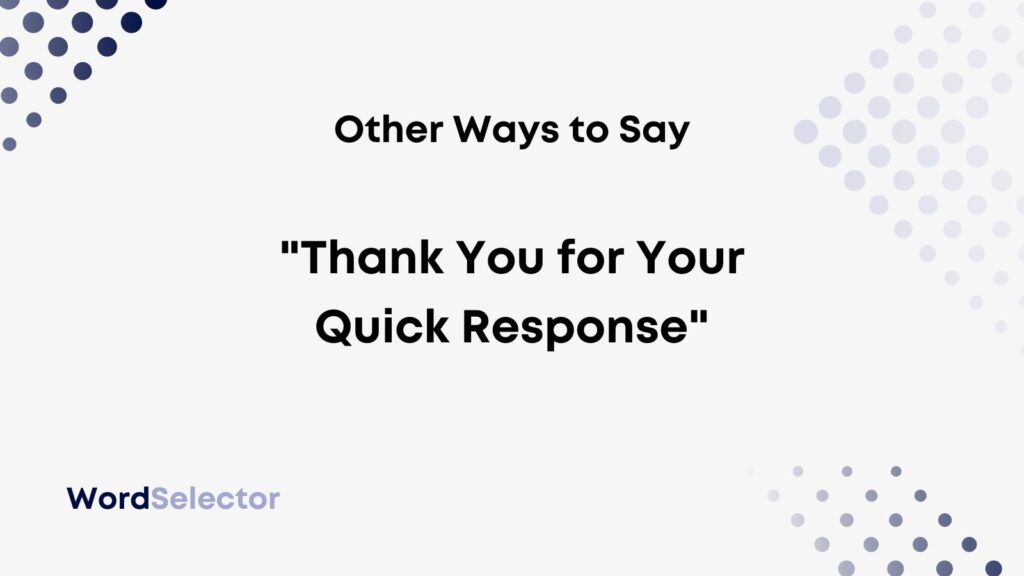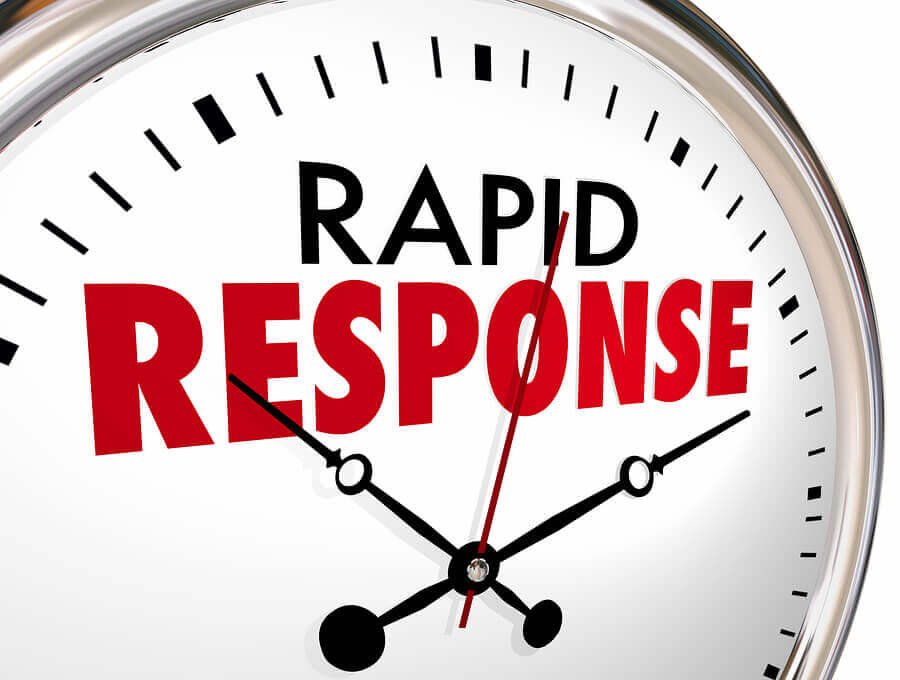Understanding The Importance Of Prompt Response
In today’s fast-paced world, the concept of prompt response has become increasingly vital across various sectors. Whether in customer service, healthcare, or even personal communications, the ability to respond quickly can determine the outcome of numerous situations. Prompt response is not merely about speed; it also encompasses the quality of the response and its relevance to the issue at hand. This article delves into what constitutes a prompt response, its significance, and how it impacts our daily interactions.
As society continues to evolve with technology, expectations for prompt responses have surged. In customer service, for example, clients expect quick replies to their inquiries, pushing businesses to enhance their communication strategies. The urgency for promptness also extends to healthcare, where timely responses can be life-saving. As we explore this concept, we will uncover how prompt response manifests in different contexts and why it is crucial for effective communication and problem-solving.
Moreover, understanding what is prompt response can lead to better practices in both personal and professional realms. It encourages individuals and organizations to prioritize responsiveness, fostering trust and reliability among peers and clients. Through this exploration, we aim to highlight the multifaceted nature of prompt responses and provide actionable insights into how they can be implemented effectively.
- Taurus And Aries In Bed
- How Did Connor Die Southern Charm
- Kelly And Kenny From Love Is Blind
- What Happened To Cheryl Burke
- Son Kat Von D
What is Prompt Response in Customer Service?
Prompt response in customer service refers to the ability of a business to address customer inquiries or issues swiftly and efficiently. In an age where consumers have numerous options at their fingertips, a quick response can be the deciding factor in customer satisfaction and loyalty. Businesses often implement various strategies to enhance their promptness, including:
- Utilizing chatbots for instant replies
- Training staff to prioritize urgent queries
- Setting clear response time expectations
- Implementing ticketing systems for better tracking
Why is Prompt Response Essential in Healthcare?
In healthcare, the importance of prompt response cannot be overstated. Timely communication can significantly impact patient outcomes, particularly in emergencies. Quick responses can lead to faster diagnoses, appropriate treatments, and overall better care. Healthcare professionals are often trained to prioritize urgent cases and communicate promptly with both patients and colleagues.
What Are the Benefits of Prompt Responses?
There are numerous advantages associated with maintaining a prompt response culture, including:
- What Is The Coquette Aesthetic
- Who Is Anderson Cooper Seeing
- Karate Kid Cast Now Jaden Smith
- What Do They Drink On Love Island
- The Big Bang Theory Tv Show
- Increased customer satisfaction and loyalty
- Improved communication and collaboration among teams
- Enhanced problem-solving capabilities
- Stronger relationships with clients and stakeholders
How Can Organizations Foster a Culture of Prompt Response?
Organizations seeking to enhance their prompt response capabilities can adopt several strategies:
- Setting clear response time goals
- Monitoring response times and adjusting processes accordingly
- Providing training to staff on effective communication techniques
- Encouraging feedback from clients to identify areas for improvement
What is the Role of Technology in Prompt Response?
Technology plays a significant role in facilitating prompt responses. With the advent of communication tools like instant messaging and email, individuals and organizations can respond to inquiries more quickly than ever before. Additionally, technologies such as customer relationship management (CRM) systems help organizations manage interactions and ensure timely follow-ups.
How Does Prompt Response Affect Personal Relationships?
In personal relationships, prompt responses can signify respect and care for the other person's time and feelings. Timely communication helps avoid misunderstandings and strengthens connections, whether among friends, family, or romantic partners. Being prompt in responses can lead to healthier relationships based on trust and reliability.
What Challenges Are Associated with Maintaining Prompt Responses?
Despite its numerous benefits, maintaining a culture of prompt response comes with challenges. Some of these challenges include:
- High-pressure environments that may lead to burnout
- Overwhelming volumes of inquiries leading to delayed responses
- Balancing speed with the quality of responses
How Can Individuals Improve Their Prompt Response Skills?
Individuals looking to enhance their prompt response skills can consider the following tips:
- Practice active listening to understand issues better
- Prioritize tasks to manage time effectively
- Utilize reminders and task management tools
- Maintain a positive attitude towards communication
Conclusion: Why Emphasizing Prompt Response is Crucial?
In conclusion, understanding what is prompt response is essential for both personal and professional success. By fostering a culture of promptness, individuals and organizations can improve communication, enhance relationships, and ultimately achieve better outcomes. As we navigate an increasingly fast-paced world, the ability to respond promptly will continue to be a significant asset across various domains.
Article Recommendations
- Jujutsu Kaisen Garlic Sauce
- Hocus Pocus The Rise Of The Sandersons
- Phil Collins Youll Be In My Heart
- Megan Fox Kids Transitioning
- Ending Of The Sopranos Explained



Detail Author:
- Name : Waldo Kertzmann
- Username : pjakubowski
- Email : wilber.kulas@blanda.com
- Birthdate : 1991-01-14
- Address : 258 Reagan Bridge New Jaylin, NY 43846
- Phone : +1 (480) 609-7764
- Company : Wisozk-Buckridge
- Job : Aircraft Launch Specialist
- Bio : Sit voluptatem reiciendis cupiditate maxime. Voluptates impedit numquam vero et dolor in. Quo vitae consequatur consequatur esse reprehenderit voluptatem quisquam aut.
Socials
twitter:
- url : https://twitter.com/aliya_official
- username : aliya_official
- bio : Temporibus architecto vitae dolores. Rem vitae et architecto ratione perferendis vitae.
- followers : 6494
- following : 2824
instagram:
- url : https://instagram.com/aliyabosco
- username : aliyabosco
- bio : Nisi eligendi unde ut voluptate tempore. Quo maiores molestiae tempora.
- followers : 1838
- following : 54
linkedin:
- url : https://linkedin.com/in/boscoa
- username : boscoa
- bio : Iure laudantium et corrupti.
- followers : 6707
- following : 1764